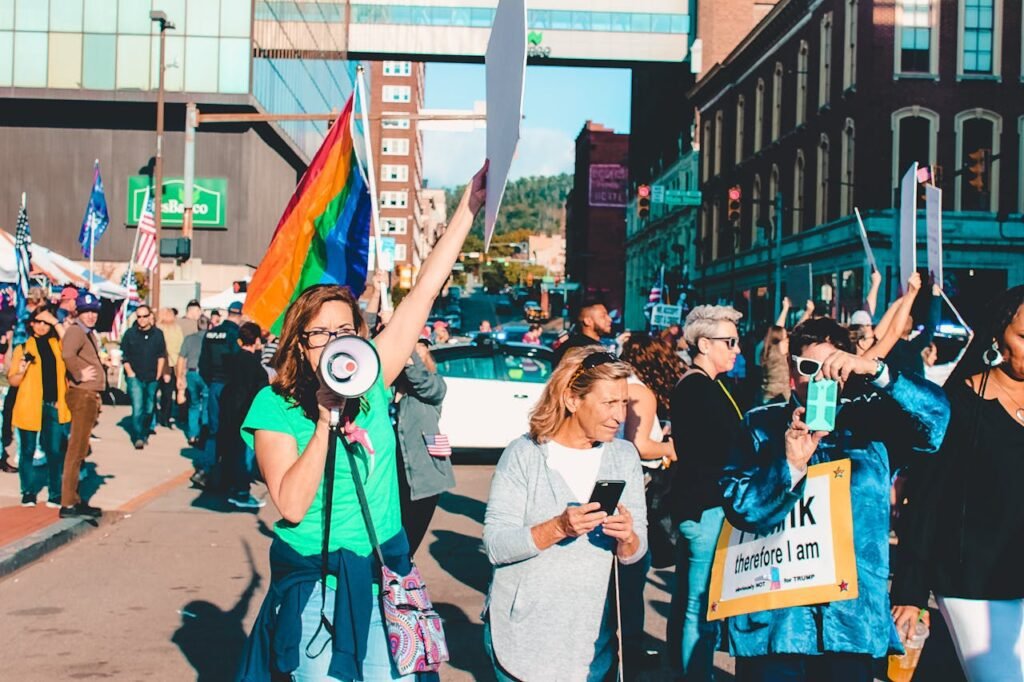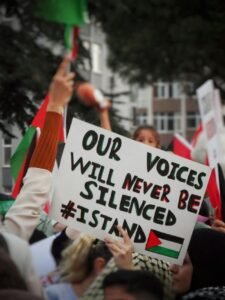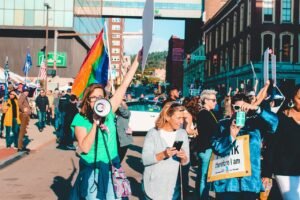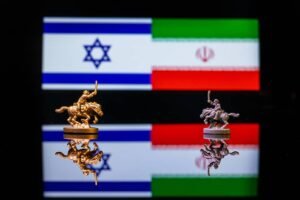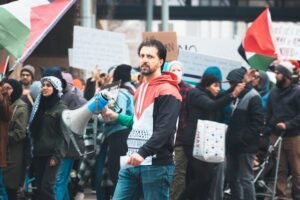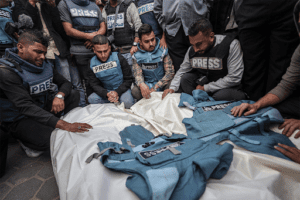The moment I finished writing the title of my essay, I found myself smiling, for as
a Palestinian, I do not remember when I first got involved in what can be labelled
as politics. As a child born one year and four months before the Nakba, by the
time I learnt to speak, I knew a lot about the predicament of the Palestinians,
through members of my family who had nothing to talk about but how they were
forced out of their homes, land and country. I used to hear many sad stories and
see tears, while sitting quietly playing with my toys. One of the stories captured
my imagination because it made me feel that it could have put an end to all the
sadness of the ladies who came to visit my grandmother’s house in Beirut. It was
a story that made me see images of the city that my family came from, Akka
(Acre). I fell in love with that story and wanted to tell it to someone who had not
heard it. So, I chose the shoe shiner who used to come to our house to clean the
family’s dirty shoes. He would sit quietly doing his job, and I would kneel in front
of him and tell him my story, what happened to Bernadotte, who wanted to
return the Palestinians to Palestine, but was assassinated by “The Jews.” I could
tell that my story had no effect or impact on him. At the time I did not know why,
probably because my mother would always come and take me back to the house,
saying in a very low voice, “Stop your chattering”, and the shoe shiner would
murmur, “Mashallah, she is very clever”. Years later I learned the full details of
my favorite story – Bernadotte was a Swedish nobleman and diplomat chosen by
the UN Security Council as a mediator in the Arab-Israeli conflict after 1948. His
full name was Folke Bernadotte, Count of Wisborg, who was assassinated that
year in the outskirts of Jerusalem by Yitzhak Shamir while on a mediation mission.
In the early 1950s, I heard a lot of political opinions from long discussions
between my father and his friends in Basra, Iraq about India, Kashmir and
Pakistan, and the assassination of Mahatma Ghandi that changed the destiny of
millions, as well as the creation of Israel and and the situation of Palestinian
refugees in Jordan, Syria and the Lebanon. But the most exciting news was yet to
come, the eruption of a revolution that toppled King Farouk and forced him to
leave Egypt with his family after abdicating the throne to be succeeded by his
infant son. What intrigued me was that I could see pictures of all these events in
magazines that my father brought home every week, Farouk, and Queen
Nariman, the baby crown prince Ahmad Fuad and the royal yacht that took the
family to Europe. At the time I could read a few words, but they did not always
make sense. My absolute best discovery at the time, from what I heard around
me was that my father was an enthusiastic supporter of of this “White
Revolution” as it was referred to, for not shedding a drop of blood. He even knew
the names of its leaders, Mohamad Najeeb, who became the first president of
Egypt, Jamal Abdul Nassir, Anwar Sadat, Khalid Muhyidin, Abdel Hakim Amer,
Salah Salim, and many more, and glorified them as the heroes who will liberate
Palestine and make us return to our homeland. Four years later, all the names
faded away but one, Jamal Abdul Nassir, the president, “El Rayyis.” He became
my father’s hero, for nationalizing the Suez Canal and winning the war against
France, Britain, and Israel, forcing all the aggressive armies to withdraw from
every inch of Egyptian soil. He also made university education free of charge for
students in Egypt and abolished the archaic feudal system.
The 1950s were for my father Zanoun Anis Jarrah, glorious years full of
achievements for his hero Nassir, and reached its peak with the creation of The
United Arab Republic, the union between Egypt and Syria. To him this unity
represented the beginning for the realization of his dream of a united Arab
Nation. Hence when he finally had a son on the 15 th of February 1958, he simply
called him, Nassir.
Throughout the 1950s and early 1960s, I loved Nassir too, because he was the one
and only hero of my family and my father’s best friends. In those years, my father
would not comment on any political issue or situation without saying “Let’s see
what the Rayyis has to say about it.” He would sit very quietly listening to Nassir’s
speech delivered to a huge rally, trying to absorb every sentence. Once the
speech ends, he then becomes a political analyst and reads between the lines of
the Rayyis’s words. After Nassir’s death, which was very traumatic for my father
and made him cry like a child, he barely talked about politics. He would sit in
silence trying to figure out things. Sometimes he would try to find acceptable
excuses for “The Naksa,” a term of condolence used in the aftermath of the June
1967 war, which in Arabic, simply means, a “setback”. I failed to agree with him,
simply because it did not make any sense to have a setback less than twenty years
after a “catastrophe,” a “Nakba.” As far as I was concerned, many major
questions remained unanswered: Why did we have a setback after declaring that
we are ready and well prepared to fight, and scores of songs promoted that
readiness for war against our enemy? And , why were we fed the wrong
information about our victories when in reality we were losing the war? In short,
the aftermath of the Six-Day War, as it was referred to, to add insult to injury,
made me lose faith in all the leaders of the Arab world and never believe or like
any of them.
But, as the saying goes, “Under every cloud there is a silver lining,” I realized for
the first time in my life that what was lacking in the world is not a leader to
glorify, but simply, justice. Justice was lacking in in Palestine, Vietnam, South
Africa and even in the USA were The Civil Rights Movement was attracting the
attention of the entire world. I also realized for the first time in my life that the
heroes who fight for justice end up dead or inside the ruler’s jails, and that they
only end up on thrones in legends and fairy tales. In later years I saw one freedom
fighter come out of twenty seven years of imprisonment to lead his people to
freedom and dignity and achieve such justice, the great Nelson Mandela.
I must admit that I did not inherit my dear father’s legacy and had to deal with the
real world without glorified heroes and morn the failure, persecution and death
of the heroes of justice round the world.

